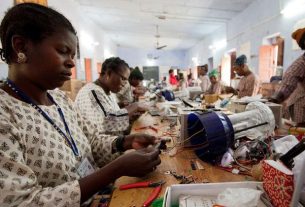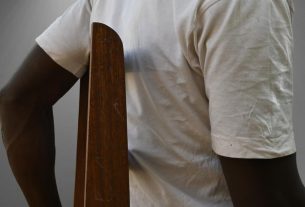Nigeria’s Economic and Financial Crimes Commission (EFCC) has made its largest-ever seizure of assets, taking control of an expansive real estate portfolio reportedly acquired through corrupt means. The seizure, which includes over 750 properties spread across a large estate on the outskirts of Abuja, has drawn significant attention to ongoing efforts to tackle high-level corruption in the country.
Unprecedented Seizure of Assets
The properties, covering approximately 150,000 square meters, are located in the capital’s rapidly developing suburban areas. While the EFCC has not disclosed the identity of the previous owner, it confirmed the properties belonged to a former senior government official. This marks a significant shift in the agency’s focus towards targeting high-ranking individuals allegedly involved in large-scale corruption, rather than focusing primarily on smaller-scale fraudsters.
EFCC spokespersons emphasized that the seizure is in line with its mandate to ensure that those found guilty of corruption do not benefit from the illicit proceeds of their activities. The agency’s intervention in this case is part of a broader push to confront systemic corruption that pervades Nigeria’s political and economic structures.
A Symbolic Moment in the Fight Against Corruption
The confiscated assets are believed to be worth tens of millions of dollars, according to property experts in Abuja. The estate, which has been the subject of speculation for years, has long raised questions about its ownership, particularly due to its lavish design and the scale of its development. The EFCC’s actions have been hailed by some as a much-needed move to address public concerns about the agency’s focus on smaller-scale internet fraud cases, rather than going after those responsible for large-scale corruption at the highest levels of government.
The EFCC was established in 2003 with the specific goal of combating corruption in a country where graft has long been entrenched. Despite this, critics argue that progress has been slow, and public perception often favors a more robust approach to tackling the corruption within Nigeria’s government institutions.
Corruption: An Endemic Issue
Corruption remains one of Nigeria’s most pressing issues, with successive governments struggling to implement meaningful reforms. Despite the country’s status as one of Africa’s largest oil producers, wealth remains concentrated in the hands of a few, while millions of Nigerians face poverty. Efforts to address these inequities have often been undermined by entrenched corruption within both the public and private sectors.
The EFCC’s recent actions come amid a series of high-profile corruption cases currently being pursued in Nigerian courts. In May 2024, former aviation minister Hadi Sirika, along with his family members, faced charges related to alleged misuse of power for personal gain. The EFCC claims Sirika used his influential position to benefit a company connected to his relatives. All three defendants have pleaded not guilty and were granted bail.
Broader Context and Challenges Ahead
The EFCC’s seizure of such a large estate has been lauded by many as an important step in the right direction. However, it also underscores the challenges the agency faces in tackling corruption at the highest levels of government. While the EFCC has gained some successes, its efforts have been hindered by political resistance, insufficient resources, and the deeply embedded nature of corruption across Nigeria’s institutions.
The seized assets represent a rare success story in a broader struggle to recover stolen wealth and hold powerful individuals accountable. As the EFCC moves forward with its mission, there are hopes that this significant asset seizure will mark the beginning of a more aggressive stance against high-level corruption in Nigeria.
Conclusion
The EFCC’s record seizure of assets tied to corruption is a milestone in Nigeria’s ongoing battle against graft. While this development may serve as a deterrent for future offenders, it also highlights the broader challenge of dismantling systemic corruption that has plagued the nation for decades. As investigations continue and more high-profile cases unfold, Nigeria’s ability to hold powerful figures accountable will be crucial in shaping the country’s future governance and economic prospects.



